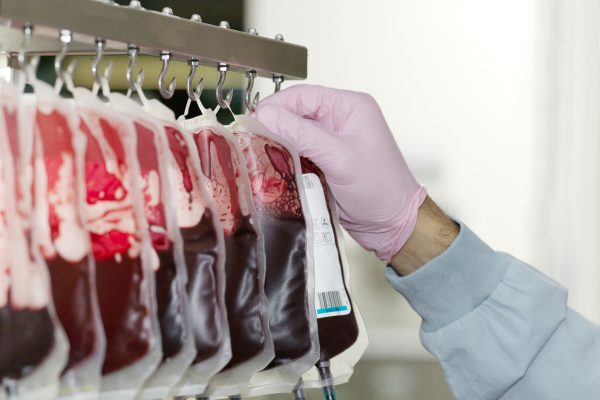
Patients with myelodysplastic syndrome (MDS)-refractory anaemia with excess blasts (RAEB) or secondary acute myeloid leukaemia (AML) evolving from MDS continue to have a high relapse risk after a haematopoietic stem-cell transplantation (HSCT). According to a study recently published in The Lancet, the addition of granulocyte-colony stimulating factor (G-CSF) and decitabine to busulfan-cyclophosphamide (BuCy) conditioning is able to reduce this post-HSCT relapse risk in these patients.
Myelodysplastic syndrome (MDS) refers to a group of blood disorders characterised by clonal expansion of mutated blood cells, which can progress into secondary acute myeloid leukaemia (AML). The only potentially curative therapy for these diseases consists of an allogeneic haematopoietic stem-cell transplantation (HSCT).1 However, relapse remains high in patients with MDS-refractory anaemia with excess blasts (RAEB) or secondary AML evolving from MDS following a HSCT. The choice of conditioning regimen is the primary therapeutic option to reduce disease recurrence after HSCT. The study at hand therefore investigated whether granulocyte-colony stimulating factor (G-CSF) and decitabine plus busulfan–cyclophosphamide (BuCy) conditioning would reduce the relapse risk compared to BuCy in this population.2
This open-label, randomised, phase 3 trial took place at six hospitals in China. Eligible patients (aged 14-65 years) had MDS-RAEB or secondary AML evolving from MDS. Patients were randomly assigned (1:1) to receive G-CSF, decitabine, and BuCy or BuCy conditioning (n=101 each). The primary endpoint was the 2-year cumulative incidence of relapse. The median follow-up was 32.4 months.2
The 2-year cumulative incidence of relapse was reported at 10.9% for patients in the G-CSF, decitabine, and BuCy arm vs. 24.8% in the BuCy group (HR[95%CI]: 0.39[0.19-0.79]; p=0.011). Within 100 days after transplantation, the most common grade 3-4 adverse events consisted of infections (34% vs. 32%), acute graft-versus-host disease (30% vs. 30%), and gastrointestinal toxicity (28% vs. 29%). There were no treatment-related deaths.2
These results suggest that G-CSF, decitabine, and BuCy conditioning is a better therapeutic choice than BuCy for patients with MDS-RAEB or secondary AML evolving from MDS who are planned to undergo an allogeneic HSCT.2
Reference